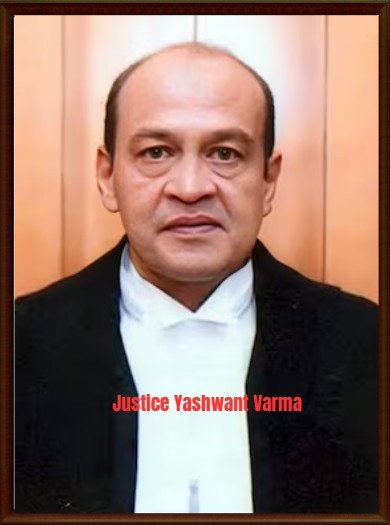In a politically sensitive and institutionally significant development, the impeachment proceedings against Justice Yashwant Varma—currently a sitting judge of the Allahabad High Court—are set to move ahead in the Lok Sabha. This comes in the wake of serious corruption allegations stemming from the discovery of heaps of burnt currency notes at his residence in March, a time when he was posted with the Delhi High Court. The gravity of the charges and the political fallout has triggered an intense debate across the corridors of power and within the judiciary.
According to exclusive information accessed by NDTV, the government will now sponsor a formal impeachment motion against Justice Varma in the lower house of Parliament. This is expected to give the ruling Bharatiya Janata Party (BJP) a strategic upper hand in reclaiming the anti-corruption narrative, which has increasingly been championed by the opposition in recent months.
The next procedural step lies with Lok Sabha Speaker Om Birla, who will constitute a special committee to investigate the allegations leveled against the judge. As per constitutional procedure, if the committee finds sufficient grounds for misconduct or incapacity, it may recommend impeachment, which will then be debated and voted upon by both Houses of Parliament.
Notably, the impeachment process had already witnessed a controversial parallel track when a similar opposition-backed motion had been acknowledged by former Vice President Jagdeep Dhankhar in his capacity as Chairman of the Rajya Sabha. However, this proposal never officially made it to the floor of the Upper House. In a turn of events that has added an element of political theatre to the issue, sources have confirmed that the opposition’s motion will now be rendered irrelevant and junked, since the government-sponsored motion is proceeding officially in the Lok Sabha.
The situation escalated earlier this week during a strategic meeting held by senior BJP leaders. The core agenda was to reassess and consolidate the party’s messaging around the judiciary and corruption issues. The political calculus was unmistakable: ahead of the high-stakes Assembly elections in Bihar this year and those in West Bengal and Tamil Nadu scheduled for next year, the ruling party wants to reinforce its position as a champion of judicial integrity and ethical governance.
Sources privy to the internal deliberations said the BJP was caught off guard when Mr Dhankhar chose to publicly mention the opposition motion in the Rajya Sabha. This was seen as a breach of an earlier consensus arrived at among major political stakeholders, including members of the opposition, that the impeachment should be dealt with through a unified and bipartisan approach in the Lok Sabha.
The fallout from Mr Dhankhar’s unexpected intervention was swift and dramatic. Within days of his remarks, the former Vice President tendered his resignation from office. Officially citing health reasons, his exit is being widely interpreted as a political casualty resulting from his deviation from the agreed strategy on the Justice Varma impeachment. It also laid bare the growing rift between different factions within Parliament regarding the judiciary’s accountability mechanisms.
Legal experts have noted that the case involving Justice Varma is particularly significant because of the optics surrounding the burnt cash recovered from his home. The implications of such evidence—allegedly linked to corruption and possible laundering—strike at the core of public trust in the judiciary. While the investigation is still unfolding, the optics alone have compelled swift political and legislative responses.
The ruling BJP appears keen to leverage this situation to underline its anti-corruption credentials and to present itself as the party willing to hold even senior judges accountable, a stance that resonates strongly with its base and larger national sentiment. Reports indicate that the BJP had meticulously prepared its impeachment motion before the Monsoon Session of Parliament began on July 21. Moreover, the government made discreet efforts to rope in support from opposition lawmakers to present a united front on the issue.
That careful planning was nearly derailed by the Rajya Sabha’s premature engagement with the opposition’s proposal. However, with that motion now sidelined and the Lok Sabha process taking precedence, the government’s strategy appears back on track.
Speaker Om Birla’s upcoming task of constituting a judicial inquiry committee will be crucial. As per Articles 124 and 217 of the Constitution, removal of a High Court judge requires a proven case of “misbehaviour” or “incapacity” following a detailed investigation. If the committee recommends impeachment, the motion will need to be passed by a two-thirds majority in both Houses.
Although rare, impeachment proceedings against sitting judges have precedent in Indian parliamentary history. However, successful impeachments are exceedingly uncommon. The Varma case, therefore, could set a critical precedent for future parliamentary oversight over judicial conduct.
As political temperatures rise and election season approaches, the Justice Yashwant Varma impeachment issue is likely to remain a focal point in national discourse. Both the process and its outcome will not only test India’s democratic institutions but also shape narratives around judicial independence, political consensus, and the fight against corruption.
This is an auto web-generated news web story.





